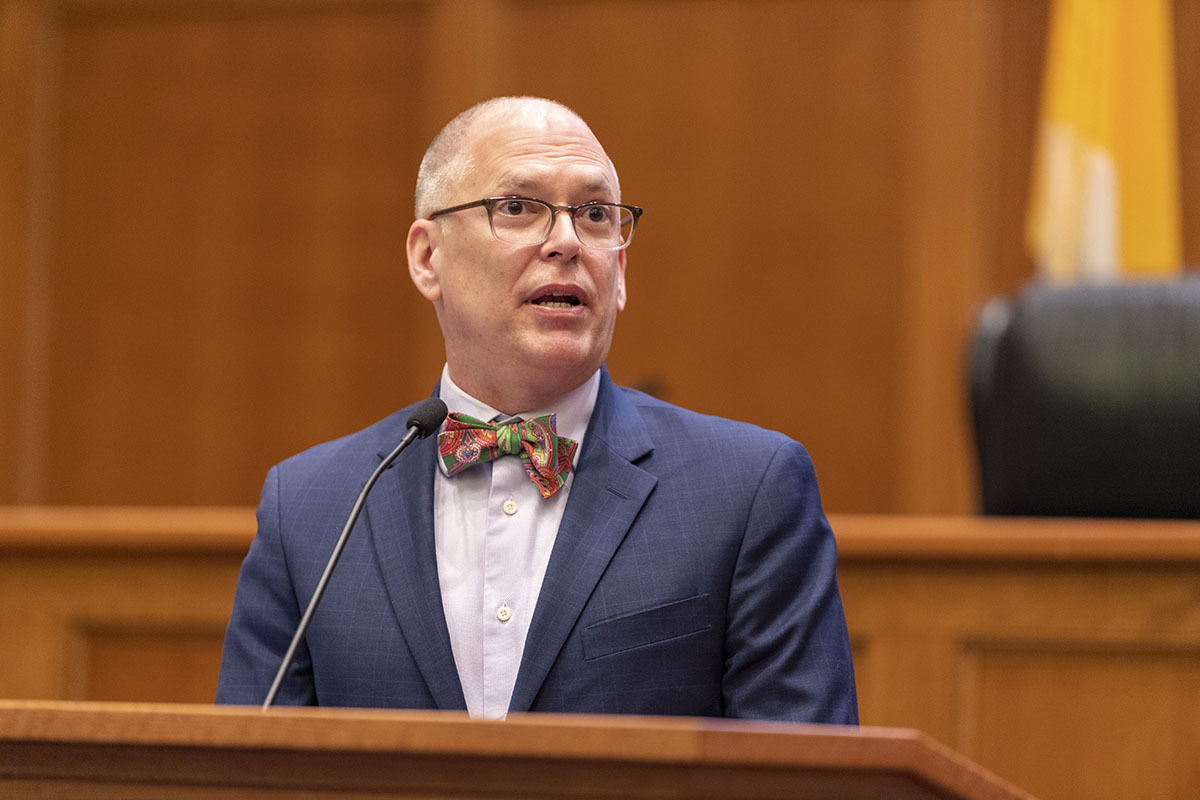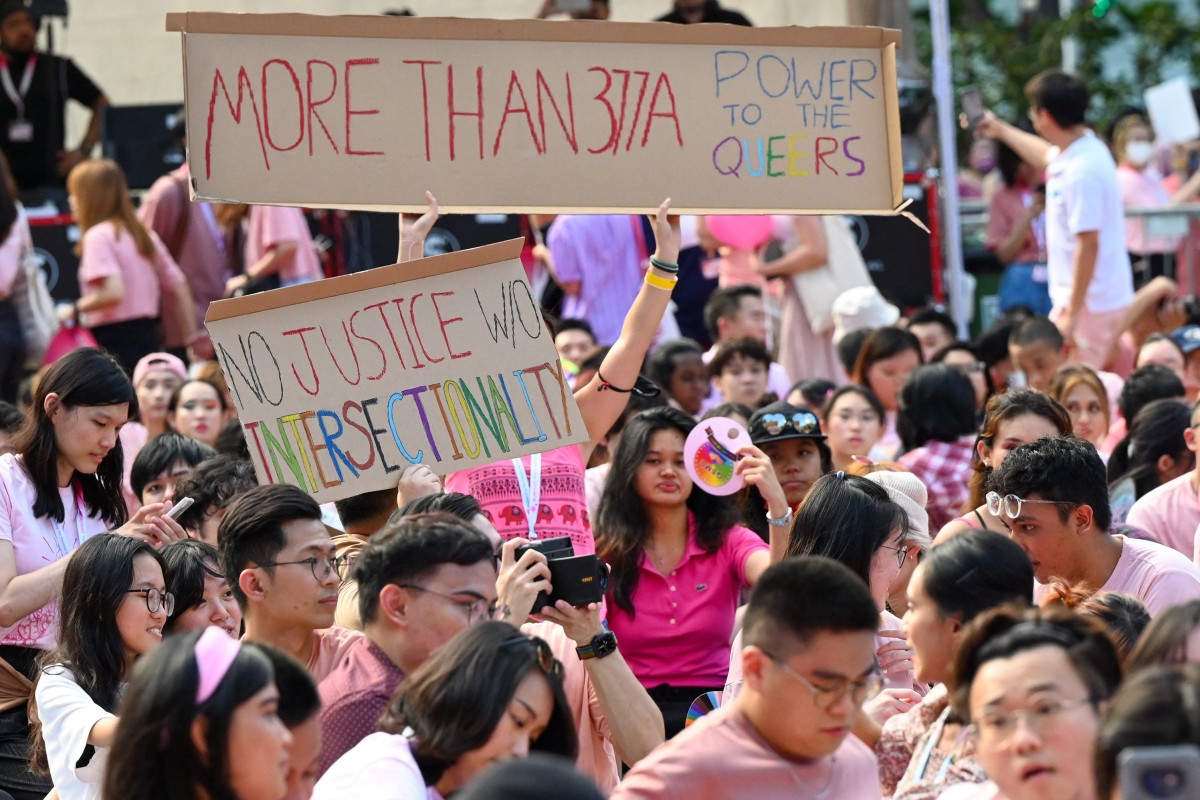

27th of December, 2022–Section 377A of the Singapore constitution, which criminalized homosexual acts, was repealed, thus ending a decades long struggle that had been initiated and undertaken by the LGBTQ+ community in Singapore. Truly, this was a victory to be celebrated, and one which directly impacted the queer community at SAS, who, although not Singaporean, have had to live under this law for their time in this country. At the same time of this major achievement, the government snuffed a significant hope for LGBTQ+ population of this country; the right to marry. It was now constitutionally defined that marriage was the union between a man and a woman–a definition the government promised to defend. So, two men can have sex now without worry of being arrested, but at the cost of everyone else (lesbians, non-binary individuals, etc.) being able to marry. Is it wrong to wonder what the implications of this are?
Across the sea, in the country that takes up the other ⅓ of SAS’s namesake, same-sex marriage was made legal in all 50 US states by 2015. It had been a struggle for the American LGBTQ+ community similar to that of repealing 377A, spending a long time waiting and dealing with the shifting world of politics, but it had been one that ended in their goal being accomplished. For us in Singapore, still seeking such change, can we learn anything from this American struggle? What exactly was gained from it, who gained from it, and what did it leave unanswered? I can only speak on this topic psychologically, but even from just a perspective, we can see the work that needs to be done for the future.
Marriage, as an institution, is desirable to many people not only for the institutional benefits it can provide, but also as a result of their drive to further an intimate relationship with a partner. Most people can assume this is the case for opposite-sex relationships, but the question of whether this is exactly the same for same-sex relationships very much still lingers.
Research has demonstrated that at a psychological level, marriages between opposite-sex and same-sex couples are not different to a significant degree. Areas that differ, such as division in household labor being more equal among same-sex married couples, can be attributed to the influence of gender roles. Meanwhile the areas with similarities, such as in factors predicting relationship quality, appear much more strongly as evidence suggesting no difference between the two types of relationships. It’s worth mentioning that the American Psychological Association itself has come out in opposition to the denial of same-sex marriage due to this (Kurdek, 2005).
It therefore appears that marriage would offer the same social, psychological, and even institutional benefits that it would for opposite-sex couples to same-sex couples. Indeed, as a study by Laurie Drabble and cohorts notes, after the legalization of same-sex marriage across the US, many couples noted their newfound access to many “practical, and often profound, benefits” they were once denied. The study itself notes this aspect of legalization of same-sex marriage to be most important as a landmark civil rights victory, ensuring the institutional equality of same-sex couples (Drabble, et. al, 2020). But being LGBTQ+ is not simply about being homosexual, with thousands of other individuals identifying their own way outside of heteronormative perceptions. Was this victory one for the whole team or just a slice of the community then?

There is research to demonstrate the broad impacts legalizing same-sex marriage has had for sexual minorities, not necessarily a direct equivalent to being in the LGBTQ+ community, but still encompassing homosexual and non-heterosexual individuals. One study by Alexander Tatum focuses in on the mental health and wellbeing of the community before the legalization of same-sex marriage across the United States. It’s results revealed a notable difference in anxiety, overall wellbeing, and other issues for sexual minorities who lived in states who had and had not already legalized same-sex marriage–those living in states who reporting worse levels in most categories (Tatum, 2017). By this, it can be supposed that for sexual minorities in general there was certainly some tangible psychological benefit gained.
Laurie Drabble and cohort’s, mentioned earlier, performed another study in 2021, one year after their previous one, though this time through a more meta-analytical lens. Both the 2020 and 2021 study both agree with the sentiment of a definite benefit being gained for all sexual minority individuals, however both also note a danger with stopping the discussion there. To do so would consequently overlook the valid and large concerns had by those in the LGBTQ+ community whom aren't directly benefited by same-sex marriage. Sure, there were widespread mental health benefits, and the victory can be celebrated at large by the community, but the struggle for marriage rights itself has taken up much focus and resources from other civil rights objectives. One wonders if that hasn't caused distress in those involved in still often overlooked struggles, such as those of transgender or non-binary individuals for their rights.
The above studies took a focus on answering this question, and provided some new ways to see the issue.
The concerns found in the two studies by Drabble and their colleagues are interesting, and ones I hadn't even considered for a while. The 2020 study identified three themes of concern regarding the conclusion of the struggle for marriage, amplified by findings in the 2021 study.
The first issue of note would be one concerning the "limitations of marriage as an institution". Many participants brought up concerns with the limitations of marriage as an institution, due to personal disagreements or feeling that marriage was not relevant to oneself. Layered onto this were additional concerns that legalization would devalue non-married same-sex or LGBTQ+ couples who may not be interested in pursuing marriage. Some, such as one polyamorous participant in the 2020 study, felt that their relationships were already experiencing this effect and causing them to feel excluded from the narrative over same-sex marriage.
Next, there were considerations to be had about how the struggle for marriage stood in relation to other important issues of rights and safety to sexual and gender minorities. The largest concern was that achieving the legalization of same-sex marriage would leave people with an “everything is solved now” mentality, and result in loss of continued support for LGBTQ+ issues. Added onto this was the concern that the community itself would leave behind the groups within it who were not as prominent. The study itself notes how gender nonbinary participants, of a group still lacking recognition, clearly voiced their fear that the gay and lesbian parts of the community might simply leave them behind, having achieved all they wanted.
Finally, there was perhaps the most interesting theme identified among participants, that marriage would erode the queer identity and culture of the LGBTQ+ community. In a sense, the study found that multiple participants felt legalizing marriage, an institution that participants identified as heteronormative, would devalue the many other types of relationships and support structures found within the queer community considered ‘non-normative’. This had potential consequences for what many also felt was the culture or spirit of the LGBTQ+ community, being the queer identity, or ability to “live without a script”, as the 2020 study quoted one participant. To put it drastically, the fear is that with marriage now legal and more of an emphasis on the traditional relationships, the LGBTQ+ community itself was moving towards assimilation into ‘normal society’, a difficult situation for those who sought the community as an escape from such a notion.
There are many more concerns both studies bring up that I haven’t mentioned, but these seem to be the most prominent. In some way they all relate to how the attention to the fight for same-sex marriage has sucked away much of the resources within the LGBTQ+ community towards one issue, leaving many dissatisfied, and some at risk of falling into worse situations. There is no doubt it has led some to doubt the future ability of the community as a psychological support for their own issues, thus risking a reversal of mental health and wellness gains from legislation mentioned earlier.
Of the many problems still facing LGBTQ+ individuals, this worry of erosion and abandonment may be the most present and serious. And as it is a problem within the community, it is therefore up to the community itself to address it.
But how, exactly?

As it’s an issue of many opinions, the only way I believe it can be solved is through hearing those opinions out. The LGBTQ+ community being international and unique to every region, it’s impossible to hear everyone out at once. Even so, at least we can start from the places closest to us–for me, this is the community at Singapore American School.
Even with a new Prime Minister who has focused on youth engagement coming to power barely a month from when this is written, it is unsure if the Singapore government’s policy on same-sex marriage is changing anytime soon. How do people at SAS feel about the continued struggle for same-sex marriage then? Should we refocus our goals, now knowing what impact ignoring other members and issues of the community has had? Or do we keep moving towards this one issue, believing in the broad benefits it may have despite the concerns it raises? Maybe the answer lies somewhere in between…
Whatever the case, the only way to find out is to hear it straight from the horse’s mouth, which is what I intend to do.
Cutrona, C. E. (2004). A Psychological Perspective: Marriage and the Social Provisions of Relationships. Journal of Marriage and Family, 66(4), 992–999. http://www.jstor.org/stable/3600174
Drabble, L. A., Wootton, A. R., Veldhuis, C. B., Riggle, E. D. B., Rostosky, S. S., Lannutti, P. J., Balsam, K. F., & Hughes, T. L. (2021). Perceived psychosocial impacts of legalized same-sex marriage: A scoping review of sexual minority adults' experiences. PloS one, 16(5), e0249125. https://doi.org/10.1371/journal.pone.0249125
Drabble, L. A., Wootton, A. R., Veldhuis, C. B., Perry, E., Riggle, E. D. B., Trocki, K. F., & Hughes, T. L. (2020). It's complicated: The impact of marriage legalization among sexual minority women and gender diverse individuals in the United States. Psychology of sexual orientation and gender diversity, 7(4), 396–406. https://doi.org/10.1037/sgd0000375
Kurdek, L. A. (2005). What Do We Know about Gay and Lesbian Couples? Current Directions in Psychological Science, 14(5), 251–254. http://www.jstor.org/stable/20183038
Tatum, A. K. (2017). The Interaction of Same-Sex Marriage Access With Sexual Minority Identity on Mental Health and Subjective Wellbeing. Journal of Homosexuality, 64(5), 638–653. https://doi.org/10.1080/00918369.2016.1196991